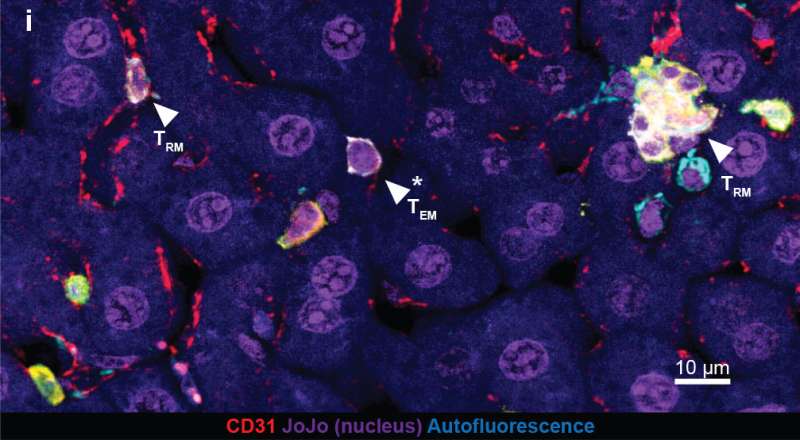September 27, 2018 report
Bolstering the liver's immune response to fight off malaria infection

A team of researchers with members from Oxford University in the U.K., the National Institutes of Health in the U.S. and Leiden University Medical Center in the Netherlands has developed a new approach to battling malaria—boosting an immune response in the liver. In their paper published in the journal Science Translational Medicine, the group describes their approach and how well it worked in mice.
Malaria is a complicated disease caused by a parasite rather than bacteria or a virus, and carried by mosquitoes—it also has a two-stage infection process in its host. Most approaches to fighting the disease involve inoculating a patient with an agent to kill the parasite after it has caused an infection—and sadly, the parasite has started to become resistant to most of them. Because of that, scientists around the world have been working toward a new vaccine, one that in addition to being effective, would not be so easily overcome. In this new approach, the researchers are going after the parasite before it has a chance to reproduce. When a person is bitten by a mosquito, sporozoites enter the bloodstream and make their way to the liver. Once there, they reproduce asexually, giving birth to multiple merozoites, which go on to infect red blood cells. The researchers wondered if it might be possible to get the liver to put up more of a response when detecting the presence of sporozoites, killing them before they can reproduce.
To test their idea, the group developed a vaccine that works by activating tissue-resident memory CD8+ T cells in the liver—it makes its way there via a virus-based delivery mechanism. Once there, it remains resident for up to six months. If sporozoites are detected, the T cells activate, killing them.
The researchers report that the approach has worked very well in mice and has thus far been proven to be safe for human use. Next up will be clinical trials to determine if the new vaccine is an effective preventative measure for people living in malaria-endemic regions. They also note that if their method works as hoped, it might also be used to fight other types of infections that get their start in organs such as the liver.
More information: Anita Gola et al. Prime and target immunization protects against liver-stage malaria in mice, Science Translational Medicine (2018). DOI: 10.1126/scitranslmed.aap9128
© 2018 Medical Xpress
















